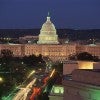
Black History Month topics among Rice faculty members’ areas of expertise
Black History Month, celebrated each February, honors the profound contributions and achievements of African Americans throughout U.S. history.

Black History Month topics among Rice faculty members’ areas of expertise
Black History Month, celebrated each February, honors the profound contributions and achievements of African Americans throughout U.S. history.

Amid discussion of a possible ceasefire between Israel and Hamas, David Satterfield, former U.S. Special Envoy for Middle East Humanitarian Issues, is available to discuss the situation.

Rice to celebrate Martin Luther King Jr. Day and his legacy with vigil, parade participation
Rice invites the community to join in celebrating Martin Luther King Jr. Day with events honoring his life and legacy as well as insights from university experts on the continued relevance of his work.

Rice experts available to speak about proposed economic, immigration and foreign policy plans of incoming president.

Emerging focus on brain health among several Rice researchers’ expertise
Rice is a hub of cutting-edge, multidisciplinary research on the brain. In addition to a critical mass of researchers in the field, Rice is home to entities dedicated to collaborative clinical and scientific research on the brain.

Rice’s Mark Jones available to discuss Texas House speaker race
As members of the Texas House of Representatives prepare to vote for their next leader, Rice political scientist Mark Jones is available to discuss what can be expected.

Rice experts available to discuss potential U.S. TikTok ban
Rice University experts are available to provide insights into the ethical, economic and social implications of a potential TikTok ban.

Rice experts available to address Southern California’s life-threatening wildfires
Rice University experts are available to provide insights into the environmental, infrastructural and societal impacts of the windstorms and wildfires threatening Southern California.

Rice experts available to discuss bird flu
Rice University experts are available to provide insights on the scientific, environmental and computational aspects of bird flu.

Rice experts available to discuss major earthquake in China
Rice University experts are available to offer insights into the associated risks, impacts and mitigation strategies.

Rice faculty and Baker Institute leadership are remembering former President Jimmy Carter — his life, legacy and connection to the university.

Rice experts available to discuss threats of government shutdown
As Congress debates a funding bill and time runs short to avert a government shutdown, Rice University faculty are available to discuss the rapidly changing situation.

Rice experts available to discuss NASA Artemis II delay
Experts from Rice are available to provide insights on a variety of space-related topics.

Rice experts available to discuss major earthquakes in California
Following the series of major earthquakes that struck California, Rice experts are available to offer insights into the associated risks, impacts and mitigation strategies.

Rice thought leaders examine Texas’ move toward Bible-based school curriculum
Mark Jones and David R. Brockman discuss the ongoing Republican-led initiatives in the U.S. to introduce more religious content into classrooms.